Annie Errez has been one of the best kept secrets in Northern England over the past few parties. A resident at Mint Club for over a decade, Errez has played alongside the likes of Raresh, Ricardo Villalobos and so many more. Her releases on Mosaic, Leftback and What NxT have seen her expand her booking schedule, but there’s still so much more to come.
Hey Annie! Thanks for talking to Trommel. How are you doing?
Hi there, yes I’m good thank you, I hope you are too!
As always let’s start chronologically, how did you first get into music?
I played instruments when I was a kid at school, mainly the saxophone. I was also in a choir and went to singing lessons, which is hilarious as I really cannot sing to save my life!
Anyway, I enjoyed it nonetheless and all of this taught me the basics of reading and writing music. I actually didn’t pursue either of these when I left school but this was around the time when I started buying my own records instead of rifling through my dad’s collection.
My introduction to house and techno came via the radio. Where I grew up there was no tangible outlet for the kind of music I was hearing on the radio – at least not for someone my age anyway, I’ll have been about 15 or 16 then I think.
Which radio stations were you picking up music from back then?
When I first started listening to house and techno on the radio it was more commercial or the more easily accessible route via Pete Tong’s Essential Selection Radio 1 show on a Friday night. That was my first proper introduction to electronic music and DJing.
And your introduction to DJing?
Looking back, because I was already collecting records before I started djing it was a natural progression. I didn’t have my own decks until I went to university and blew my student loan on buying some second-hand Technics SL-1200s which I still have now. I was hanging around with a group of friends who all bought records and DJed, and were already quite immersed in what was going on in the Leeds underground scene at the time.
So I was lucky really as they pointed me in the direction of record shops, good club nights and I’d say definitely shaped my taste in music at the time. A friend showed me the basics of how to work a mixer and that was it, I was hooked and proceeded to spend hours on end messing around on my decks. I remember feeling very excited by it all! When you’re exploring all this completely new stuff, and also there wasn’t really much online then.
Well there was, but I mean there was but nowhere near as accessible as things are now. So the chase was fun and addictive, I remember that.
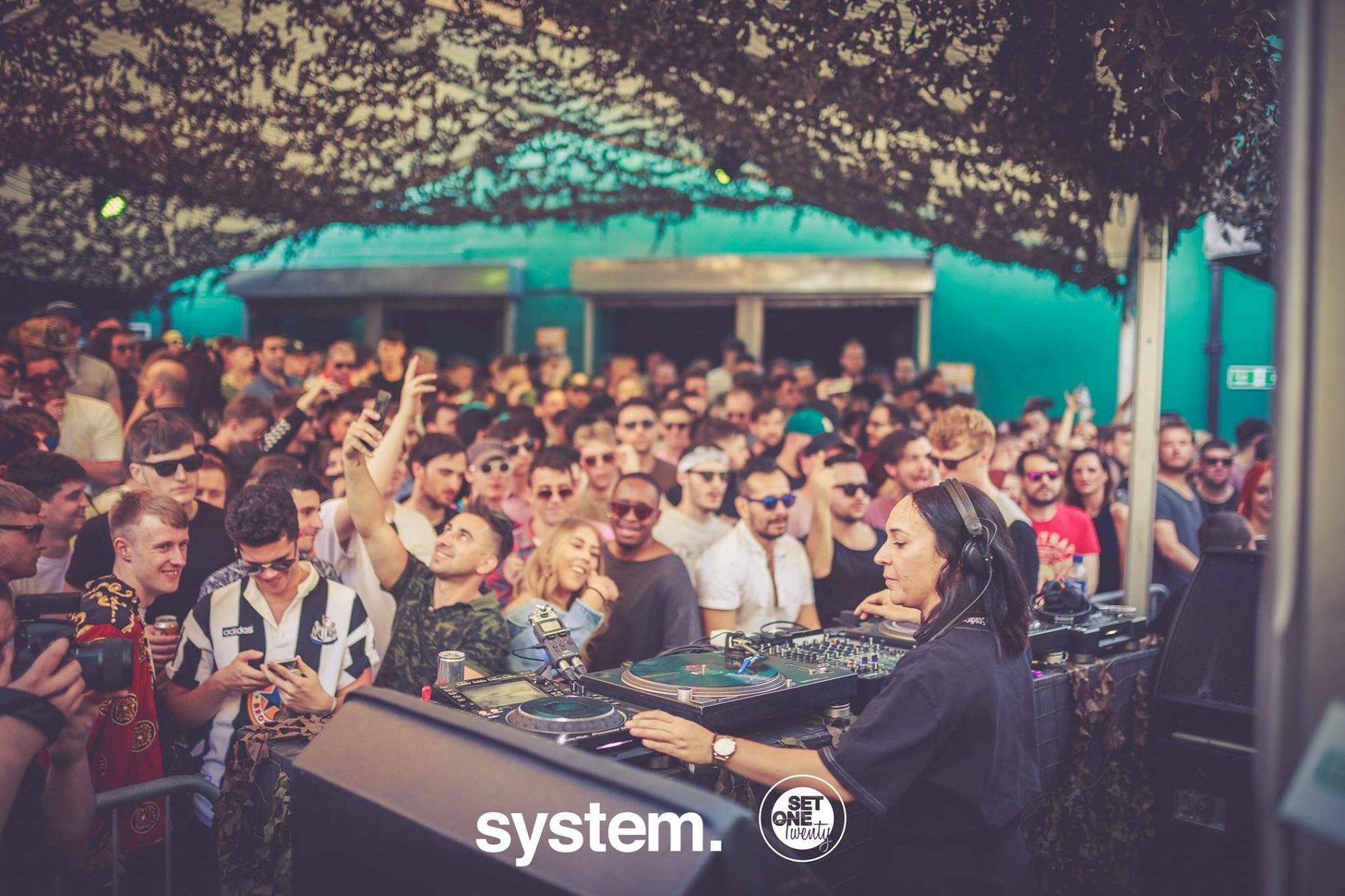
Who were some of your musical inspirations when you were getting into DJing?
In the very early days I was really inspired by a lot of the UK tech-house that was coming out of London and the South coast such as Eddie Richards, Terry Francis, Nathan Coles, Steve O’Sullivan and his Mosaic label, Mark Ambrose, Wiggle and Eukahouse as well as Sheffield’s Chris Duckenfield and the Swag records stuff. I used to go see a lot of those guys playing at another brilliant night called Chunky in Leeds and bought loads of records from that era, I still play a lot of them now. Of course, there have been loads of other influences between then and now but those were the first.
Any particular highlights from uni days of going out? Any sets that you saw that changed the way you thought about DJing or music?
I remember going to Basics at the Mint Club religiously every week for a good spell, and also Technique and Asylum where you’d hear breaks, techno and disco. There was also a techno night called Superconductor which was ace. I remember seeing Laurent Garnier and Andrew Weatherall there for the first time, both of which blew me away. Weatherall in particular really changed my perspective on djing – I remember recognising a lot of the records he was playing, but he was playing them in such a different way than I would have done at the time, that’s when I first realised that context and programming are so important.
You’ve of course been a trusted resident of System. in Leeds for a number of years, how did this opportunity arise?
I’ve known Shane and Keith from the Mint Club for a long time and used to play for them at parties at a pub just outside of Leeds centre. They were proper old school lock-in type raves with a wicked crowd and loads of quality DJs. We stayed friends after those parties finished so when Shane said he was taking over Mint Club, he asked me to get involved which I was obviously over the moon about! I feel very lucky to be a resident as it really is one of the best parties going, again yes I’m biased but you couldn’t meet a nicer bunch of people and so much effort and love goes into putting all of these events on.
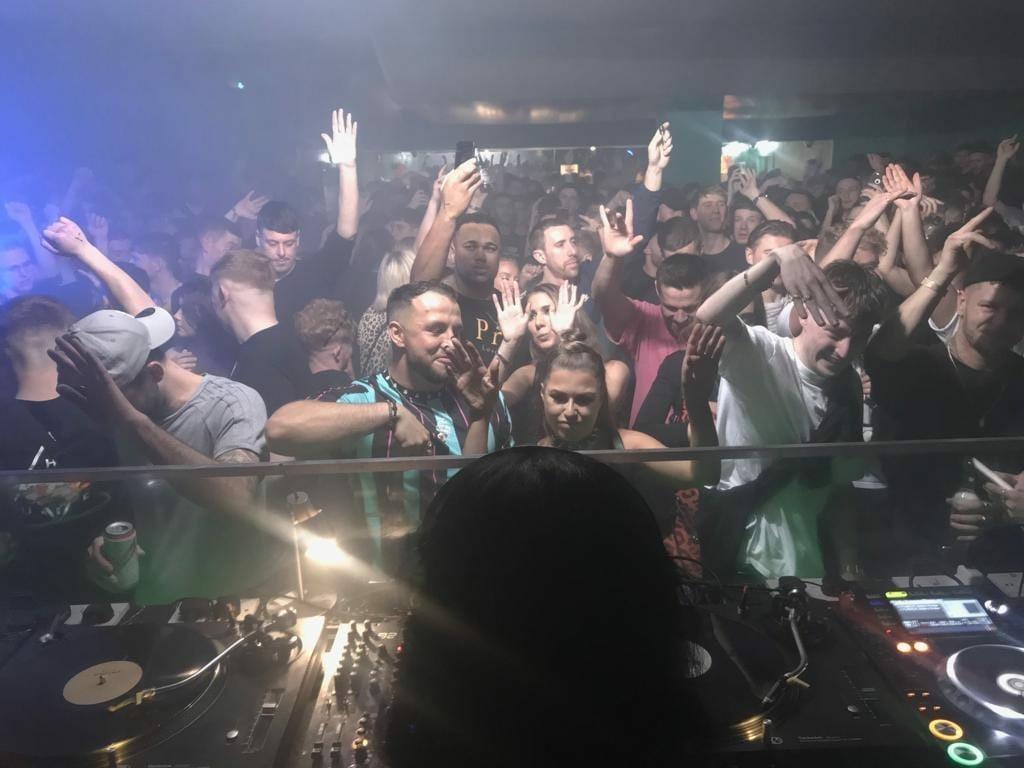
As a resident, you often take the warm-up slot. What do you think is the key to a great warm-up set?
I think in my case I’ve had a lot of practice and I’ve been lucky to have been able to learn this at the Mint Club. My style is one of tension building anyway so I enjoy warm-ups and my style lends well to it.
I’d say the key is to strike a balance between familiarity and intrigue, if I analyse my own sets I think that’s what I’m trying to do in a round-about way and thinking about it I’d say this is the key to any set, not just a warm-up. Also really knowing your tunes – something that sounds mellow in one situation might not in another, it’s also all about context. I think and I have been caught out by that many a time.
Of course, sadly Mint Club is closing down due to property developments plans. This has been a recurring theme in the past couple of years, such as Dance Tunnel in London and more recently Blackbox in Birmingham. Do you think councils should be doing more for nightlife?
Yes, definitely councils in the UK should totally be doing more. I think the whole culture of underground music should be more supported, encouraged and nurtured. I think, particularly in the UK, that underground music especially electronic music, is underestimated by government and councils.
By that I mean that the impact underground music and its surrounding culture has on society as a whole is underestimated and neglected. It’s so important and has been for a number of years. For example, our culture has shaped and touched many, many people who wouldn’t have become the people they are without it, it touches so many in very positive ways – forms friendships teaches important acceptance and social skills and gives a platform for expression and art. I’ve met so many people that have had an amazing, inspiring influence on my life and I can wholeheartedly say that our paths wouldn’t have crossed in any other situation than in a nightclub.
That might sound dramatic but it’s true and I do wonder what it’s going to be like for future generations if the heart and meeting places for this exchange are taken away from us. It’s bleak when I think about it. But if you look back in time this has happened before and the culture doesn’t go away it just gets pushed elsewhere which can also be good for regeneration and often the best art comes out of hard times. So onwards and upwards or further underground I say. Thankfully in Leeds, although the Mint Club is closing, we will still have Mint Warehouse and of course several other established venues to keep the rave alive!
How do you find the Leeds scene in general?
Leeds is brilliant, everyone who comes here also says this! I am probably biased but really it is a great place to meet people and get involved in a scene quickly. People are very friendly, not just in the music scene but in general, I think that’s the vibe of the city and this, of course, is mirrored in whatever scene you’re in to here.
Also, the quality of what’s going on in Leeds is really high when you look at the size of the city and the number of people actually in the scene. The fact that it is a very affordable place to live also gives people the freedom to do a lot more as well as make and buy more music. I think that’s why if you look at all the Leeds “exports” there are possibly more than many other UK cities of comparable size.
In my experience of going out in Leeds from my time at University, there’s what I’d call a ‘Digger culture’, where searching and playing for older, more obscure records is encouraged. Have you felt this culture at all?
I think this is an extension of what makes Leeds great and the scene here, people are so into it and are very knowledgeable and informed about music and they like to share this knowledge and get a kick out of it which is ace. Therefore, the ‘digger culture’ is very much encouraged and has always happened for as long as I’ve been living here I think, so yes I’ve definitely noticed it.
I have to say though that it doesn’t feel like it comes from a place of snobbery or oneupmanship but more of positivity. I’m very much from the “if it’s a good record who cares when or how it was made and just because it’s obscure doesn’t mean it’s good” school of thought, so I’ve always treaded this one with caution.
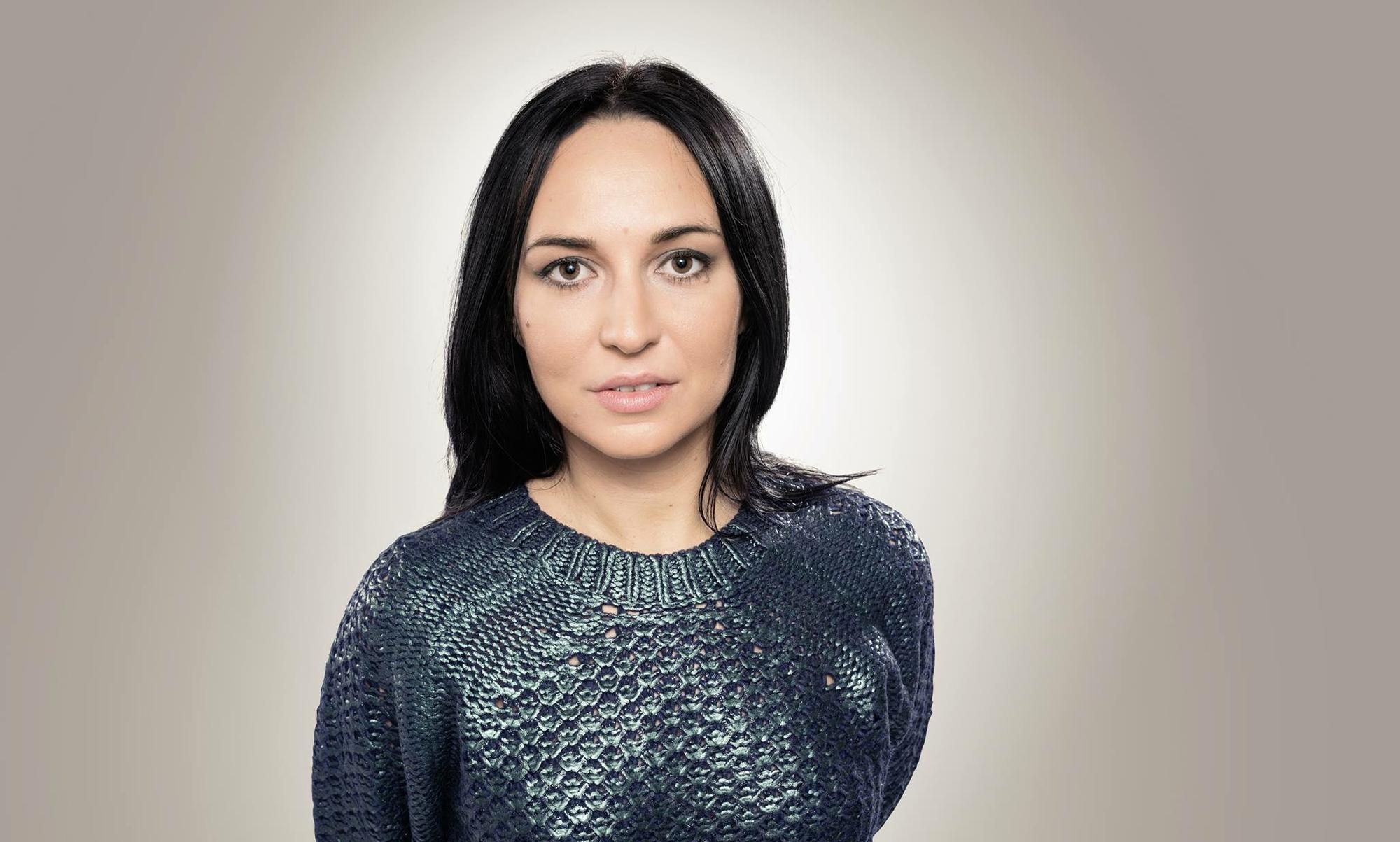
What’s your process of digging through music?
I’ve noticed this changes depending on how I’m feeling. If I’m feeling really low I can’t bring myself to listen to music which is odd as I’d think it’d be the opposite. I think a lot of people can go to music when they’re sad, I need to be in a good place before I approach tunes – be that buying records or making music myself.
I generally buy online and check music most days that way. I’ll have carts on the go that I keep adding to, or want lists, then when I buy records, and this applies to both online and in a record shop itself, I’ll listen another two or three times to each record and will force myself to whittle the pile down to the only essential or stand out ones.
Of course, there were a few that got away that I still think about now, but I’ll generally track them down if I made a mistake the first time round! I also make an effort where possible to visit record shops when I go to a new city as well local record shops such as Tribe [Records] in Leeds, I love going through second-hand stock in particular and you’ll get records in some shops you might have missed online. Lastly, playing back to back with other DJs is one of my favourite things to do and this always puts me on to new records, or records I’ve not heard before anyway, and gives me ideas for where to search next.
Is there anyone in particular that you’ve enjoyed going B2B with?
To be honest I’ve never gone back to back with someone and felt that it’s been a disaster . It’s always worked quite well, at least I’ve thought so anyway! So I’ve enjoyed all of them so far. It’s been with my friends mostly so that’s probably why they’ve been fun and worked well, plus the fact that they are all amazing DJs. People like the Leftback crew, Mick [Michael McLardy], Dudley [Strangeways], Chris [Boardman], Frazer Campbell, Rich Nxt, Laura Jones, who I’ll be going back-to-back with soon, and Lewis Oxley. I’m sure there are more but my memory is terrible!
This has been a common theme through the past couple of years in all career fields. What are your thoughts on sexism in the music industry? A problem or not?
I’ve never personally experienced sexism in the music industry, or in any other industry for that matter, so I’m not sure if I’m qualified to comment on this. I can, however, appreciate that it exists but I’d also like to think that in this day and age we can eliminate any positive or negative discrimination by simply acting on music and talent alone, regardless of gender.
You recently released on Rich NxT’s ‘What Nxt’ compilation! How did this come about?
I’ve known Rich for quite a few years since the FUSE guys have been playing at Mint Club and I’ve always rated his tunes and played them loads. He asked me for a demo as he was putting together some releases for his What NxT label which is designed to showcase music from new producers so I was buzzing when he said he’d like to include “With Swing”, the rest of the compilation is brilliant so I feel quite humbled to be included amongst it.
Dating further back you also released on Internal Connections Vol 2 via the Leftback label. What’s the story behind this one?
So again, the guys at Leftback are really good friends and over the years we’ve steadily played at more and more events together. Dudley asked me for a demo and we thought that it would be a good introduction to the label for me to release on the V/A compilation. Hopefully, I’ll be releasing more on Leftback in the future too. It’s such a consistently great label and I’ve got so much respect for their whole ethos, so again I’m really pleased to be part of that crew too!
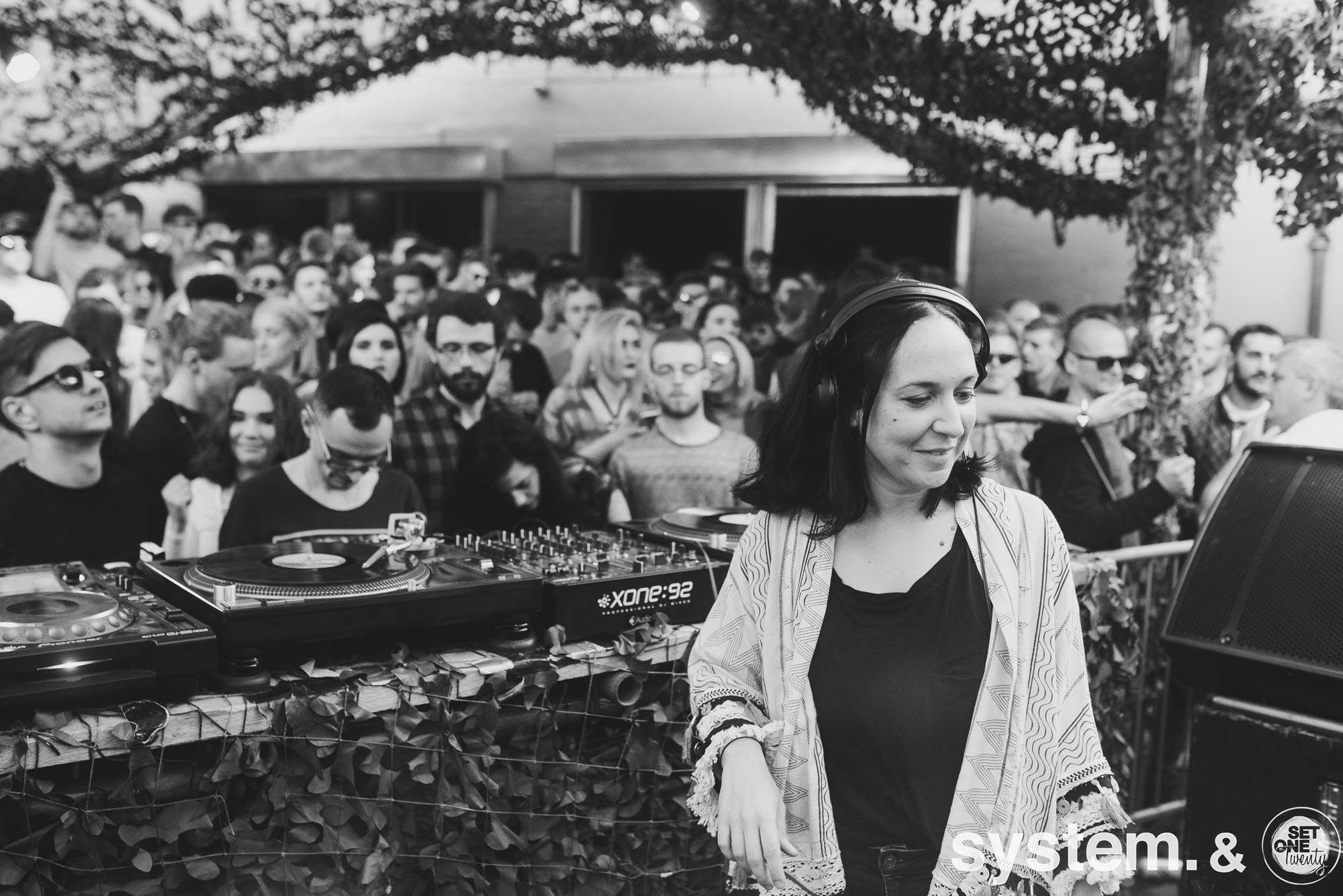
What’s your set up in your studio?
I use a mixture of hardware and software via Ableton. At the moment I’m loving the Roland Boutique D-05 which I sometimes sequence using an MFB Urzwerg Pro along with a Sequential Circuits Pro One. The Pro One is awesome for creating bass as well as vintage sounding FX and bleepy weirdness. I also use a Korg Electribe which I love and have sort of swapped out with the MPC which I used a lot previously, no doubt I’ll come back to the MPC in the future though.
Most of my percussion is created using the MFB Tanzbar and Roland TR-808. I just got my 808 working again recently thanks to investing in the E-rm Multiclock – I know everyone keeps saying it’s a game changer but it really is. For those not familiar with the multiclock, essentially it’s a sync device which allows machine playback with zero latency and groove control so this has really helped my workflow and allows me to get stuff down a lot quicker.
What makes a great party for you personally?
It really depends what sort of party it is but generally speaking, it’s about getting all the different aspects right. The crowd and music are the most important ones, then the sound, venue, production, etc. At organised club nights or bigger events, people also forget about the staff working behind the scenes a lot and they are so important – security, bar staff, logistics, sound and light technicians. It’s really important to get this right too as this can make or break something. Then finally I’d say leave your expectations at home and enjoy it for what it is.
What excites you in electronic music right now?
There is so much good music around at the moment and it feels very collaborative with people working on all sorts of projects together and generally supporting each other.
Having said that, there isn’t anything in particular that excites me more than ever as there’s always been exciting projects or trends! I think that’s what we all enjoy about electronic music. It’s the fact that it’s always quite interesting, exciting and there are loads of places to look for new things. Electronic music is always progressing which is what I love about it.
What’s a track that you can’t stop playing right now?
There are lots to choose from but I’d say “Flipside Flute” by Dudley Strangeways, which I believe will be out on the next Leftback release.
And finally, what do fans of Annie Errez have to look forward to in 2019?
I’m loving my new studio set-up so hopefully there will be a lot more music to share! Also playing music in clubs as much as I can! I’ve also recently started to work with a great new agency so I’m excited about that too.
You can follow Annie’s musical adventures on Facebook, keep yourself up to date with her schedule on Resident Advisor and listen to her mixes and production snippets on SoundCloud.
Checkout next Bruno Schmidt’s feature in the next edition of the Rising Star series.



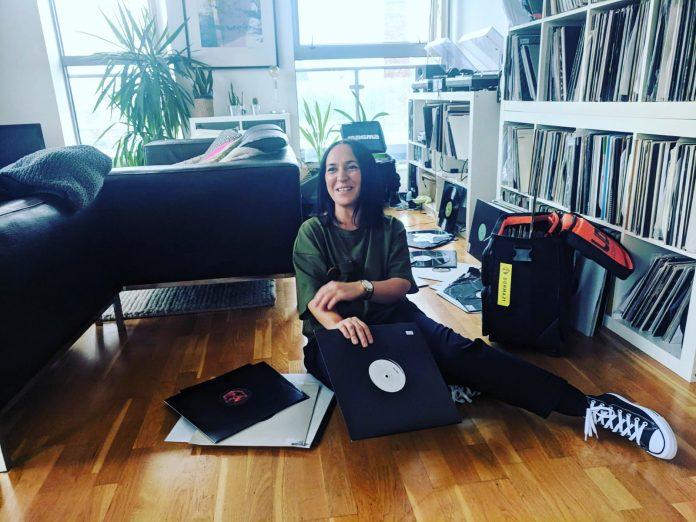



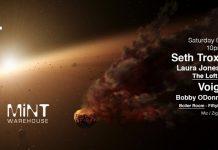
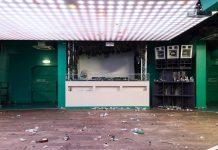

![Premiere: A2 – Jorge Savoretti & Francisco Tettamanti – Orion [WTR002]](https://trommelmusic.com/wp-content/uploads/2026/02/WTR002-soundcloud-Whose-These-Records-324x235.jpg)
![Premiere: A2 – Anas M – Mission Possible [VDR001]](https://trommelmusic.com/wp-content/uploads/2026/02/vdr-001-label-design-02-100x70.png)

![Premiere: A2 – mrelss – Season of Reason [AMAM044]](https://trommelmusic.com/wp-content/uploads/2026/02/label_side_A-Alessio-Mereu-100x70.jpg)
![Premiere: 2 – Santon – Only a Test (Alain de Saracho Remix) [SDR012]](https://trommelmusic.com/wp-content/uploads/2026/02/Santon-Only-a-Test-EP-Artwork-Alain-de-Saracho-100x70.png)
![Free Download: Zombies in Miami – What Ya Doing [TFD128]](https://trommelmusic.com/wp-content/uploads/2026/02/photo_2026-02-12-10.38.24-e1770892750337-100x70.jpeg)
![Premiere: 1 – DAT (Italy) – Not My Plan [SENS001]](https://trommelmusic.com/wp-content/uploads/2026/02/IMG_9750-Sensazione-Stupenda-100x70.png)
![Premiere: B1 – Kolhida – Break And Escape (Cezar Lazãr Remix) [TTM003]](https://trommelmusic.com/wp-content/uploads/2026/02/IMG_2883-Aleksandr-Gocheleyshvili-100x70.png)
![Premiere: A1 – JJ Fortune – Design [LNS10]](https://trommelmusic.com/wp-content/uploads/2026/02/1188556-100x70.jpg)
![Premiere: A1 – Alexander Skancke – Saga Of Subvision [QRK015]](https://trommelmusic.com/wp-content/uploads/2026/02/photo_2026-02-03_17-31-24-100x70.jpg)